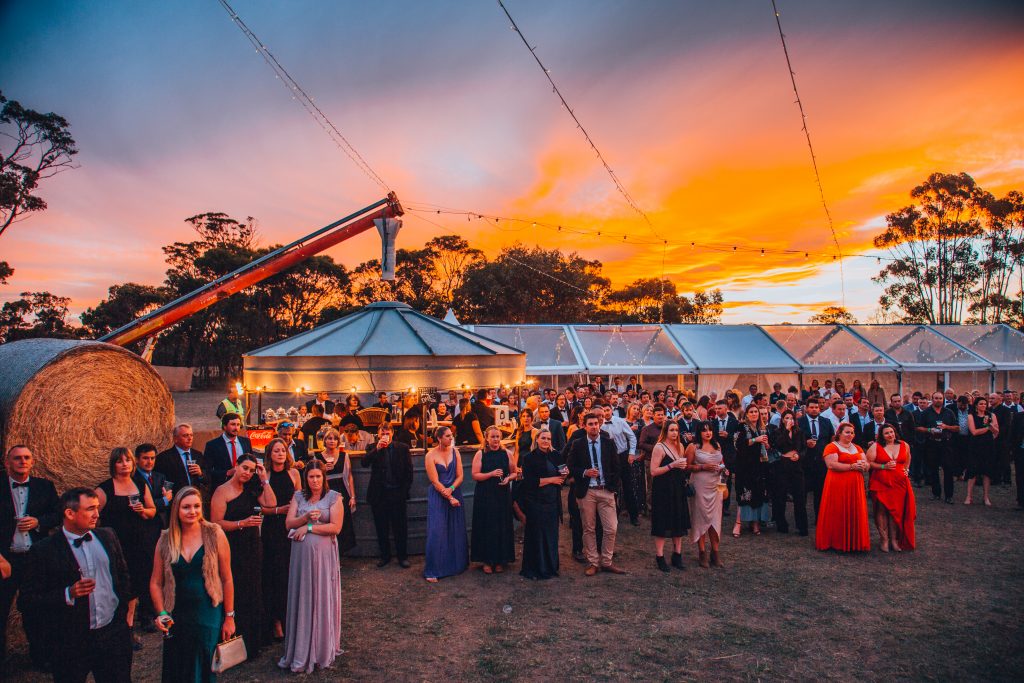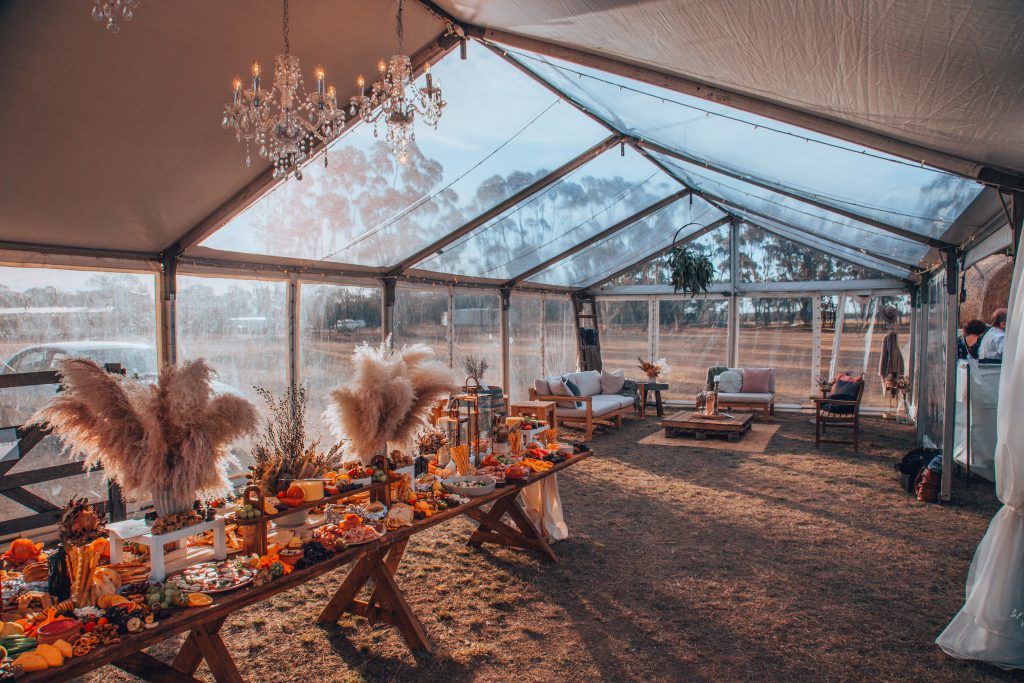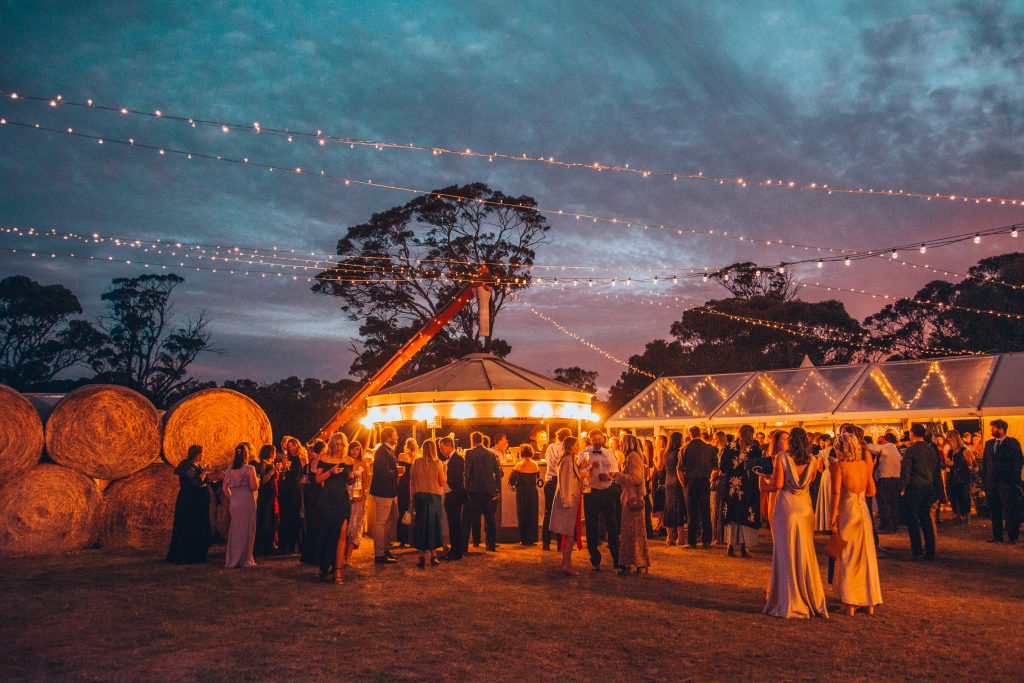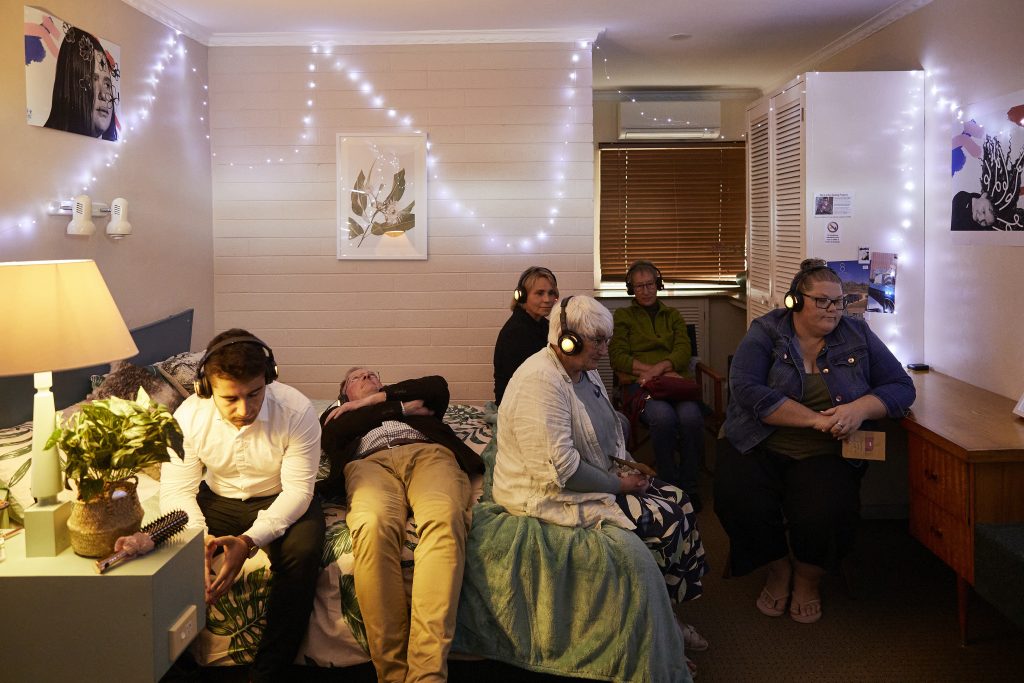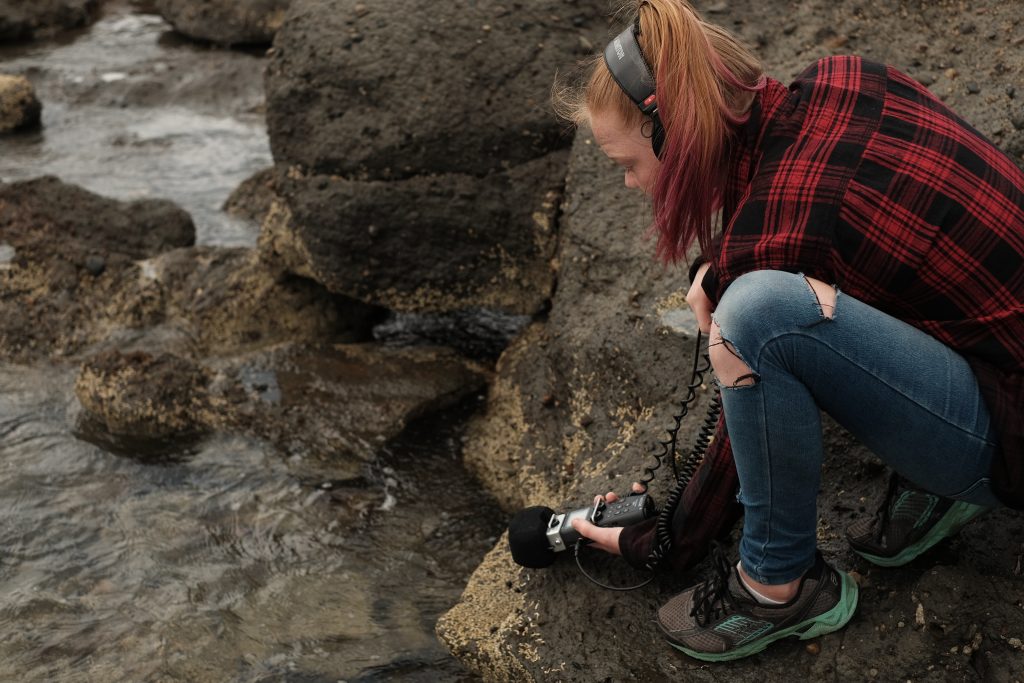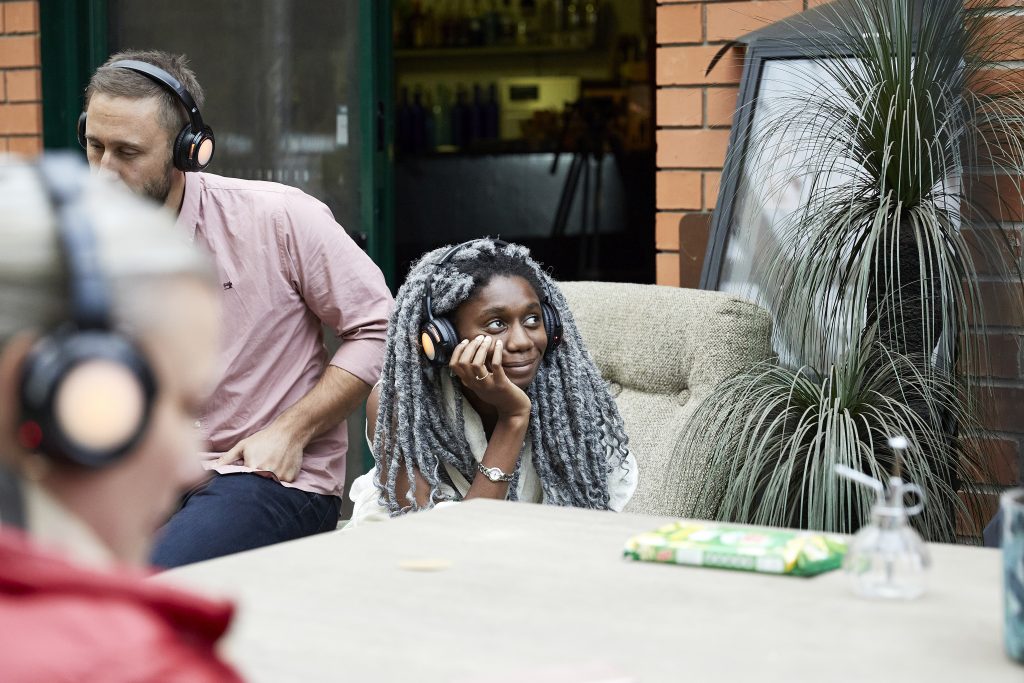Foundation for Rural & Regional Renewal (FRRR)
Ramingining, an Aboriginal community home to around 870 people, is situated on the edge of the Arafura Swamp in Arnhem Land, approximately 560 kilometres east of Darwin in the NT. The community is made up of mainly Yolngu people.
Ramingining artists and community members, through the Bula’Bula Arts Centre, wanted to provide more activities that strengthen the community’s connection to their cultural roots, knowing this is integral to people’s health and wellbeing. They also wanted their young people to learn to practice and celebrate their culture from Elders.
Following Cyclone Lam in 2015, the community successfully lobbied for a new cyclone shelter. The completed shelter has multiple uses including as recreation centre, a space for youth programs, a basketball stadium and the occasional movie theatre. The concrete block building was practical but somewhat bland, without representation of the local Yolngu culture.
Thanks to a $9,973 Strengthening Rural Communities grant, funded by the Bertalli Family Foundation, the Bula’Bula Arts Centre was able to bring together the older and younger generations of Yolngu people to commemorate their culture through the creation of two large public murals on the outside walls of the cyclone shelter.
Yolngu culture is built on a kinship system that consists of two moieties, Dhuwa and Yirritja, and these are the foundations of the skin systems, totemic relationships, storylines, songlines and more. Each mural, approximately three by five metres, honours one of the two moieties. The murals are a huge achievement visually depicting 20 unique stories. Twenty-one Bula’Bula artists, alongside about 20 Ramingining youth, created the murals over several sessions during the January 2022 school holidays.
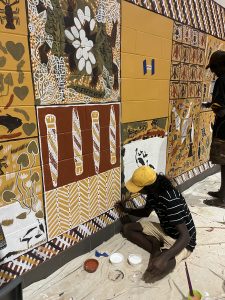
The painting sessions were observed by many other community members, who came along to see what was happening. The murals have been highly welcomed by the community, bringing smiles and words like letchu (awesome), manymak (great) and yolngu rom (our culture).
The younger people have developed a better understanding of their culture, and the broader community has a greater sense of pride and self-esteem from the creation of a more culturally appropriate meeting place. The murals also act as a teaching tool, with many families coming to show their children and tell the culturally significant stories.
The Bula’Bula Arts Centre is a locally governed, owned, and operated Aboriginal Corporation situated in the heart of the community and plays an important role supporting more than 150 artists to maintain and strengthen their cultural practices. It also offers training, education, career pathways and enterprise opportunities, along with providing social services contributing to the social and physical health of the community.
The most successful and proudest part of the project for the Bula’Bula Arts Centre was the engagement of Yolngu people from the initial concept to execution and finally, the outcome and ongoing nature of keeping culture strong.
Dhuwa wall artists included: Gary Smith, Dorothy Djampilil, Daniel Warrulukuma, Evonne Rraraypum, JB Fisher, Joy Borruwa, Billy Black, Joy Burruna, Lisa Gurrulpa and Shannon Ashley.
Yirritja wall artists included: Joanne Mombuyngu, Selena Munguluma, Peter Gambung, Romeo Gaykamangu, Bobby Bununggurr, Andrew Malibirr, Johnny Malibirr and Evonne Gaywrri.
Artist helpers and art workers: Selena Galang, Kylie Pascoe, Steve Malibirr, Ross Dhaparuwuy and Jasmane Malibirr.
The East Arnhem Regional Council authorised the creation of the murals and also provided staff time in-kind to assist with the project.
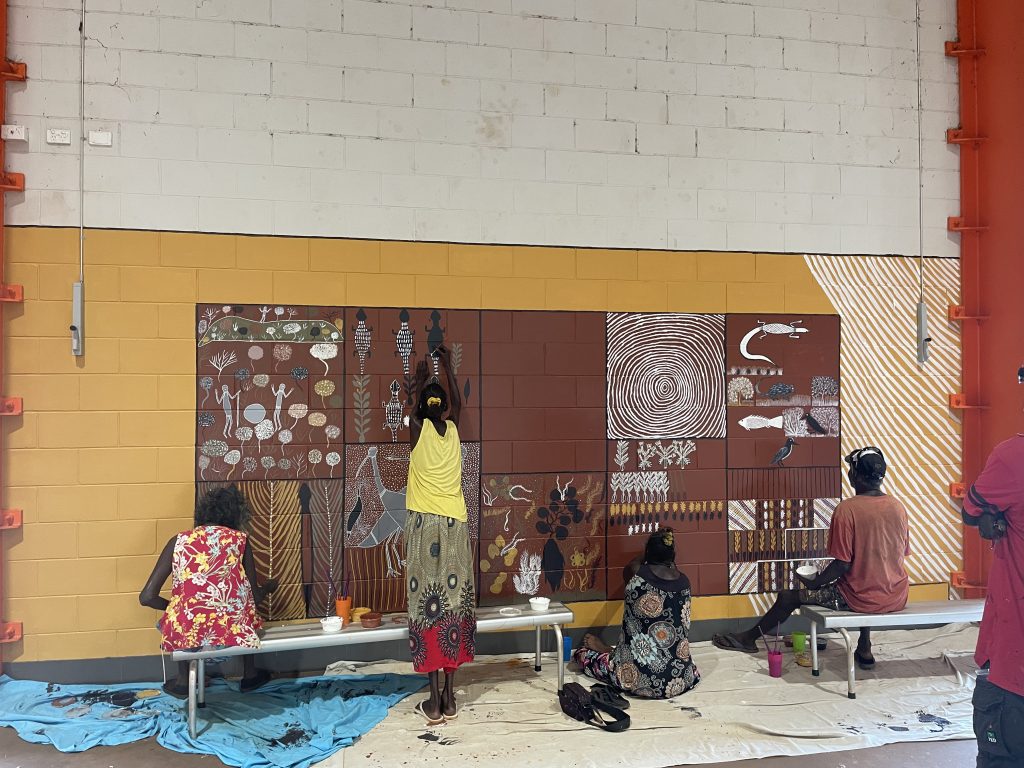
More than $770,000 in vouchers distributed
Students and families in remote, rural and regional parts of Australia will start the 2022 school year with a little extra support, thanks to the generosity of FRRR and its donors, and the Community Foundations and groups helping to distribute the more than 15,700 Back to School vouchers across the country.
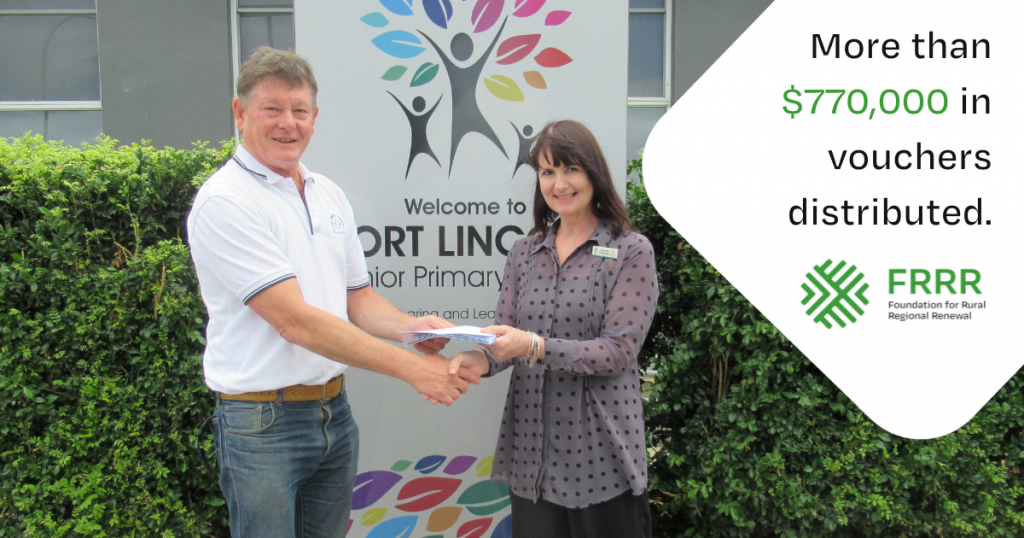
FRRR’s Back to School (BTS) program partners with community groups and Community Foundations to provide $50 gift vouchers to local families in need. The vouchers can be redeemed at select national retailers or local businesses for school essentials like uniforms, shoes, school bags or stationery.
Now in its 18th year, the BTS program has worked with community organisations in rural communities to distribute more than $10.7 million in BTS vouchers and help in excess of 216,000 students and their families get what they need to start the school year on a positive note. This includes families that have been impacted by natural disasters such as 2019-20 Black Summer Fires, flooding events, and the economic impact of the COVID pandemic.
Sarah Matthee, FRRR’s General Manager Partnerships & Services, said that the Back to School program continues to give a helping hand to rural families doing it tough.
“The unique aspect of the BTS program is that it taps into the deep understanding and the trusted relationships that local organisations have within their communities to ensure that these vouchers go to families most in need of the support.
“For many rural families, schooling and finances continue to be impacted by the pandemic. Although fifty dollars may not seem much, that little bit of extra help can go towards easing their worries in some small way,” Ms Matthee said.
In some communities, local Community Foundations also got behind the BTS program, with FRRR and its donors offering to match local donations, dollar for dollar. This year communities raised almost $63,000 in local fundraising across the country. Thanks to this community support, together with funds from the Origin Energy Foundation, FRRR was able to provide an extra 2,514 vouchers. One hundred percent of all donations to the program go directly into purchasing a $50 voucher to support a primary or secondary school student in need.
Eyre Peninsula Community Foundation, in South Australia, has worked with FRRR since 2009 to distribute BTS vouchers to local students and their families.
Garry Downey, Chair of Eyre Peninsula Community Foundation, said that the organisation sees huge need to continue to help families start their children off well-prepared for their learning years.
“The support of the FRRR program is truly valued, and their willingness to match locally donated funds creates an outstanding opportunity for Eyre Peninsula residents and businesses to boost the impact for local kids.”
You can see the full list of recipient organisations and the more than 100 remote, rural and regional communities that will benefit from these vouchers below.
BTS vouchers are funded through the support of FRRR donor partners, which include Portland House Foundation, Perpetual Foundation – Julian Flett Endowment, News Corp Australia, Fire Fight Australia Fund, Counter Point Community Services (Cycle Recycle), Bertalli Family Foundation, UNICEF Australia and Origin Energy Foundation, as well as private and individual donors.
For more information about the program, visit https://frrr.org.au/back-to-school/.
To support grant programs like this through FRRR, you can make a tax-deductible donation at frrr.org.au/giving/.
The full list of recipient organisations are below.
| Organisation | Location | |
|---|---|---|
| NORTHERN TERRITORY | ||
| Isolated Childrens Parents Association Northern Territory State Council | Mataranka, Daly River, New Castle Waters, Ti Tree | |
| NEW SOUTH WALES | ||
| Community Foundation for Albury Wodonga Region Ltd | Albury, Wodonga, Corowa, Howlong | |
| Edward Public School Parents & Citizens Association | Deniliquin | |
| First Steps Count Incorporated | Taree, Wingham, Old Bar , Nabiac | |
| Foundation Broken Hill Limited | Broken Hill, Wilcannia, Menindee | |
| Mumbulla Foundation | Bega Valley Shire | |
| The Southern Highlands Foundation | Bowral, Berrima, Mittagong, Moss Vale | |
| The Trustee for Northern Rivers Community Foundation | Alstonville, Ballina, Banora Point, Baryulgil | |
| Volunteering Coffs Harbour Incorporated | Coffs Harbour | |
| Walhallow Parents & Citizens Association | Walhallow | |
| QUEENSLAND | ||
| Biggenden Primary P&C Association | Biggenden | |
| Buderim Foundation Limited | Buderim, Mountain Creek, Sippy Downs, Kuluin | |
| Cowboys Charity Limited | Badu Island, Bamaga, Boigu Island, Chinchilla | |
| Peachester State School P&C Association | Peachester | |
| Tara & District Family Support Committee Incorporated | Tara, Chinchilla, Miles, Wandoan | |
| SOUTH AUSTRALIA | ||
| Eyre Peninsula Community Foundation Inc | Port Lincoln, Whyalla, Ceduna, Streaky Bay | |
| Foundation Barossa | Nuriootpa, Angaston, Tanunda, Kapunda | |
| Fleurieu Community Foundation Ltd | Strathalbyn, Goolwa, Middleton, Port Elliot | |
| Stand Like Stone Foundation Ltd | Allendale East, Beachport, Bordertown, Frances | |
| TASMANIA | ||
| George Town Neighbourhood House Inc | George Town | |
| Swansea Primary School Parents and Friends Association | Swansea | |
| VICTORIA | ||
| Ballarat Foundation United Way Inc | Blowhard, Ballan, Bungaree, Cape Clear | |
| Bass Coast Community Foundation Open Fund | Wonthaggi, Waterline Area, San Remo Area, Cowes Ventnor | |
| Donald Learning Group Inc | Donald, Marnoo | |
| Into Our Hands Community Foundation Limited | Wangaratta, Milawa, Oxley, Glenrowan, Moyhu, Whitfield | |
| South West Community Foundation | Warrnambool | |
| St Arnaud Neighbourhood House Inc | St Arnaud | |
| Kaniva College | Kaniva | |
| Mirboo North and District Community Foundation Inc | Mirboo North, Thorpdale, Yinnar, Boolarra | |
| The Trustee for Geelong Community Foundation | Greater Geelong, Winchelsea, Torquay, Meredith | |
| Tomorrow Today Education Foundation Ltd | Baddaginnie, Benalla, Broken Creek, Devenish | |
| Uniting (Victoria and Tasmania) Limited | Maffra, Wurruk, Longford, Seaspray | |
| Victorian Aboriginal Child Care Agency Co op Ltd | Morwell, Moe, Wangarratta, Wodonga | |
Koreng Country
It is a narrative that we so hear often in many remote, rural, and regional communities across the country. Severe weather that can cause drought, flooding, fires, and frost decimating crops and livestock in areas that survive on the agriculture industry. Major events like drought can affect farming regions for years and in doing so cause the residents of these towns extreme stress and anxiety.
In the town Jerramungup in Western Australia, they too are familiar with this narrative. For the past four years, this farming community has endured particularly dry seasonal conditions. With little rainfall and severe wind events, frosty winters and at least four fires, the soil conditions have been left bare and exposed, meaning farmers have struggled to earn an income. To add to the stressors, due to their deteriorating financial situation, many producers were forced to sell off a large majority of their sheep and cattle flocks.
These cumulative disasters seriously affect the mental health of those trying to maintain an income through farming. This current situation has caused many families to leave the town, causing higher rates of social isolation.
With this knowledge, the Fitzgerald Biosphere Group (FBG) took it upon themselves to create an event where residents could come together and “take a night off”. Since their inception in 2002, the FBG has been active facilitators of natural resource management projects including, strategic control of priority weeds, biodiversity conservation, on-farm trials, and sustainable agriculture climate adaptation. They have often held informative and educational events, but after the success of the 2019 Dancing in the Dirt Gala Ball, they knew it was important for the community to make sure it went ahead again in 2020.
With a $5,000 Strengthening Rural Communities (SRC) grant jointly funded by the Bertalli Family Foundation and FRRR, the FBG was able to cover the fees for the live entertainment. The 300 guests in attendance were treated to a night of music from a live band and a much-needed laugh from a comedian.
The FBG was pleased to report the complete success of the night. It was able to bring the adults of the town together for a night of fun and connection. It was so popular they needed to hire an extra bus to transport the guests safely to and from the event. When asked what they would do differently next time, they said they would have more people working to accommodate the popularity of the event.
“Dancing in the Dirt achieved everything we had hoped – and more. Our little town was buzzing with excitement in the lead up to the event, it took our minds off the past few difficult seasons and gave our town a fresh focus and outlook on the season to come.”
Jessica Bailey, FBG Administration Officer
Tommeginne Country
A group of young women from Tasmania’s north coast have taken ownership of their stories, thanks to a Strengthening Rural Communities grant.
For 27 years, Big HART Inc has found innovative ways to respond to disadvantage on the north-west coast of Tasmania. Young women are a particularly challenged cohort, but a program run by Big HART helps them build confidence and skills to succeed and steer their course away from negative social outcomes, at the same time as learning new digital skills.
Radio Diaries pairs young, disadvantaged women with professional audio artists to create compelling podcast pieces exploring the lives of young women, like themselves, growing up in a disadvantaged community.
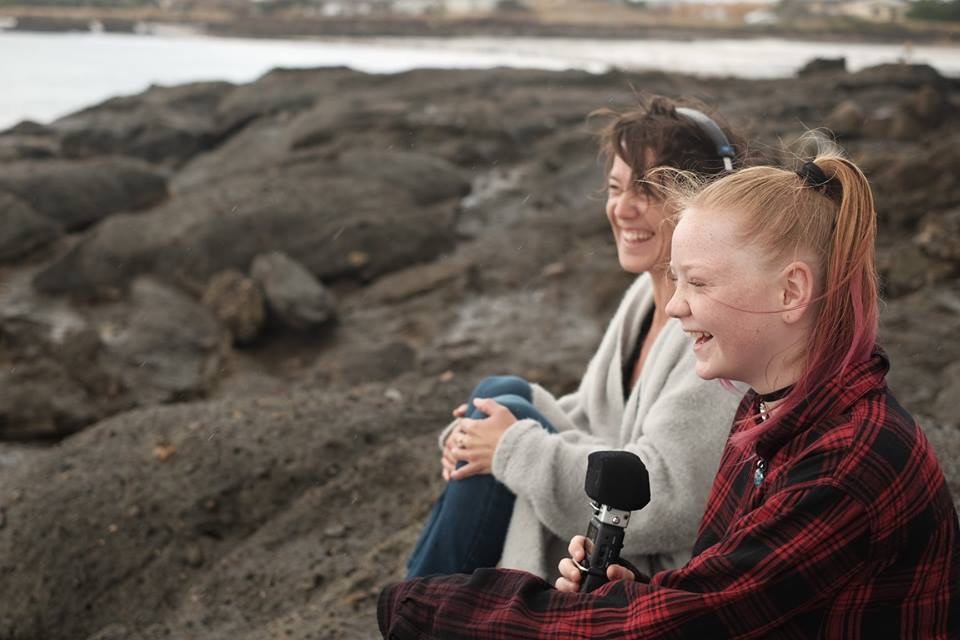
A $10,000 grant, funded by the Bertalli Family Foundation, supported the development and presentation of the podcasts, including delivery of the workshops and mentoring. The participants, aged between 11 and 15 and at risk of disengaging from school, were identified by local schools, Rural Health Tasmania and youth services. Interest in the project and numbers for the audio skills workshops exceeded expectations.
What emerged was a compelling body of work. Radio Diaries was showcased at a celebratory community dinner, attended by 70 community members, to mark International Women’s Day in March 2020 including Government representatives. This included Trinity’s story, (watch – Facebook video with animation), which has since been showcased at an online audio conference presented by a leading podcast agency, and picked up by the ABC (listen).
“One of the key benefits of this event was that a number of young women who may ordinarily struggle with systemic challenges were able to feel heard. They were able to share their stories with a room full of community, friends, family, political and business representatives, and feel that they were being taken seriously.”
-Sam Hawker, National Producer, Big HART Inc
Through Radio Diaries, these young women became the storytellers and drivers of changing perceptions around their capabilities. They were given the chance to engage with others in the community and be trained up as citizen journalists, equipping them with new digital abilities, and bringing them a step closer to being prepared for the jobs of the future, armed with new confidence and support.

